By Lesley Gist, The Gist of Freedom
Watch… Lecture on this image, Lincoln’s signing of The Emancipation Proclamation, President Obama’s copy and the Origin of Watch Night.
“Lincoln blames the Free Blacks for the war,” Holzer explains. “[He] says, if it wasn’t for your presence here this wouldn’t be happening. Go where the ban is not upon you, he tells them. Go to the Caribbean, go to Africa.”
Responding to Lincoln, The Free Blacks say, ‘we appreciate your offer to send us to South America, Haiti, and so on, to appease you White folks, but our blood lines and ancestry in America is at least 200 years older than your own. America is Home and we are not leaving’. – Phil Sexton (I’m paraphrasing, of course).
On Aug. 14 1862, Abraham Lincoln hosted a “Deputation of Free Negroes” at the White House, led by the Rev. Joseph Mitchell, commissioner of emigration for the Interior Department. It was the first time African Americans had been invited to the White House on a policy matter. The five men were there to discuss a scheme that even a contemporary described as a “simply absurd” piece of “charlatanism”: resettling emancipated slaves on a 10,000-acre parcel of land in present-day Panama.
Edward M. Thomas, John F. Cook, Cornelius C. Clark, John T. Costin, and Benjamin McCoy—met with Lincoln in August 1862 to debate his proposal for a black colony in Central America Cook, Costin, and Clark were members of the Social Civil and Statistical Association, A black city-based organization. The SCSA had sought to “banish several emigration promoters from Washington” weeks before the delegation met with Lincoln. Many of the SCSA’s members were connected with the prestigious Fifteenth Street Presbyterian Church.
“He wanted this message out,” Holzer explains. “What’s important to keep in mind is that he had written the Emancipation Proclamation. It was languishing in a drawer or burning a hole in his pocket. He knew he was going to do this, but he wanted Northern Americans who were dubious about marching toward racial equality to be assured that he was not doing this for the black race. He was doing this for the Union, to reunite the country, to defeat the rebellion, and he had no concern about blacks, their feelings, their resonance. He does have his finger in the wind.”
Lincoln was trying to mold public opinion, to make the proclamation palatable. And, Holzer says, the president was waiting for the right moment: a Union victory on the battlefield — which finally came at Antietam.
Within a week of that victory, Lincoln ordered the rebellious states to obey this ultimatum within 100 days: “Either return to your legal balance with the Union, end this rebellion, or your slaves will be then, henceforward and forever free.”
There was an immediate backlash: Lincoln’s Republican Party was punished at the polls in the 1862 elections. Then, on Jan. 1, 1863, Lincoln was to issue the final decree at the White House.
“It was New Year’s Day and by tradition there was a party,” Holzer says. “And Lincoln went downstairs early and began receiving guests, and the afternoon comes and goes and African-Americans are gathered in churches, telegraph operators are already keyed up to bring the glorious news to the church whenever it arrived, and nothing happens.”
When Congress passed the District of Columbia Act emancipating slaves in Washington in April 1862, it also appropriated $100,000 to resettle “such free persons of African descent now residing in said District, including those liberated by this act, as may desire to emigrate.” Two months later, Congress appropriated an additional $500,000 to colonize slaves whose masters were disloyal to the United States. And on July 16, the House Select Committee on Emancipation and Colonization recommended $20 million for settling confiscated slaves beyond United States borders.
The first Confiscation Act in 1861, which confiscated all enslaved people used for Confederate military labor, and the second Confiscation Act in 1862, which confiscated all enslaved people of rebel masters. Congress also formally instructed Union Army commanders not to enforce the Fugitive Slave Law, abolished slavery in the western territories, and most importantly, fulfilled a longstanding abolitionist demand, the abolition of slavery in the District of Columbia. African Americans hailed abolition in the nation’s capital, viewing it as a sign of general emancipation. Bishop Daniel Payne of the African Methodist Church met with the President to celebrate the occasion. This was one of the first in a series of meetings between Lincoln and black leaders during the war.
July 17 – The Confiscation Act of 1862:
In the Confiscation Act of 1862 Congress placed a powerful revolutionary weapon in Lincoln’s hands. The Act authorized the president “to cause the seizure of all the estates and property, money, stocks, credit and effects” of all military and civil officers of the confederacy or of its states and after 60 days’ notice to confiscate the property of all “engaged in armed rebellion” against the United States. Adoption of the Second Confiscation Act and Militia Act by the Administration which authorized emancipation and the employment of fugitive slave labor as weapons of war. The two Acts declared “forever free” all captured and fugitive slaves of the Confederates and authorized the mobilization of African-Americans in “any military or naval service for which they may be found competent.”
By the summer of 1862, Lincoln had decided to issue an Emancipation Proclamation. Abolitionist agitation and pressure from Black and White Abolitionists within his own party had helped push Lincoln to toward this action. As the war dragged on and the need for manpower increased, emancipation also became a sound military strategy.
Tubman argued that God would not let Lincoln win the war unless he did the right thing and abolished slavery.
The demand for the emancipation of the slaves was escalating as the civil war proceeded. Fredrick Douglass, Harriet Tubman and hundreds of freedmen constantly petitioned and demanded that Lincoln end slavery. The outbreak of the civil war was accompanied by many revolts, a general strike by the enslaved on the plantations and a mass exodus across the Union lines.
When Lincoln issued his preliminary proclamation in September 1862, announcing his intent to enact an Emancipation Proclamation within a few months, the very nature of the war changed. It shifted from a war for the Union into a war against slavery or a war for emancipation, the purpose slaves, abolitionists, and Radical Republicans had demanded from the very start of the Civil War. In his first meeting with Douglass, who came to the White House in August 1863 to protest unequal pay and rank for African Americans in the Union Army, Lincoln conceded that while he had been slow to act, he would not step back from emancipation. And he ensured that abolition would be permanent by pushing for the passage of the Thirteenth Amendment in the months before he was assassinated.
No doubt buoyed by these signs of Congressional support, Lincoln pushed forward with the Chiriquí plan and instructed Mitchell to arrange the Aug. 14 meeting. The five delegates included Edward Thomas, the delegation chair and a prominent black intellectual and cultural leader; John F. Cook Jr., an Oberlin-educated teacher who ran a church-affiliated school; Benjamin McCoy, a teacher and the founder of an all-black congregation; John T. Costin, a prominent black Freemason; and Cornelius Clark, a member of the Social, Civil, and Statistical Association, an important black social and civic organization that had recently sought to banish several emigration promoters from Washington.
Mitchell’s views on the desirability of colonization mirrored those of the president he served. The delegates he recruited were not at all convinced. The men had been wary of the president’s intentions and had agreed to attend only after adopting two resolutions criticizing the plans, as a way to provide political cover. Lincoln’s strategy at the meeting prevented any of these men from voicing their opinions on the matter of colonization, and the delegation never responded formally to Lincoln’s plan.
Nevertheless, the publication of Lincoln’s remarks at the meeting generated a furious response from all corners of the anti-slavery world. To Senator John P. Hale, a Radical Republican from New Hampshire, “The idea of removing the whole colored population from this country is one of the most absurd ideas that ever entered into the head of man or woman.” Lincoln’s treasury secretary, Salmon P. Chase, wrote in his diary, “How much better would be a manly protest against prejudice against color! — and a wise effort to give freemen homes in America!” On Aug. 22 William Lloyd Garrison editorialized that “the nation’s four million slaves are as much the natives of this country as any of their oppressors,” and two weeks later The Pacific Appeal noted that Lincoln’s words “made it evident that he, his cabinet, and most of the people, care but little for justice to the negro.” And Frederick Douglass said that “the President of the United States seems to possess an ever increasing passion for making himself appear silly and ridiculous, if nothing worse.”
Lincoln’s hopes for the Chiriquí venture barely outlasted the summer. On Aug. 28 he accepted an offer from Kansas Senator Samuel C. Pomeroy to organize black emigration parties to Central America, and on Sept. 11 he authorized Caleb Smith to sign an agreement with Thompson advancing money to develop the mines. But on Sept. 24, two days after issuing the preliminary Emancipation Proclamation, Lincoln abruptly suspended Pomeroy’s operation.
The Chiriquí venture was, in retrospect, doomed from the start. Ambrose Thompson’s title to the coal lands proved questionable, and a report by the Smithsonian Institution’s Joseph Henry found that the Chiriquí coal was almost worthless as fuel. Several Central American governments also opposed the plan: Luis Molina, a diplomat representing Honduras, Nicaragua, and Costa Rica, characterized the plans as a thinly disguised effort to make Central America the depository for “a plague of which the United States desired to rid itself.”
The failed venture hurt hundreds of people who had volunteered to go on the first trip. “Many of us have sold our furniture” and “have given up our little homes to go,” wrote one emigrant. The uncertainty and delay are “reducing our scanty means” and “poverty in a still worse form than has yet met us may be our winter prospect.” In response, Lincoln could do no more than ask for their forbearance. After issuing the Emancipation Proclamation, the president never again issued any public statements on colonization.
source: http://muse.jhu.edu/article/380942








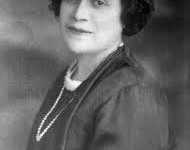
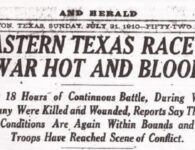

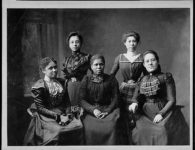
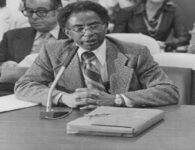
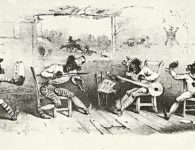


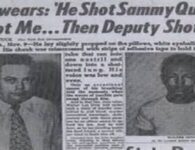
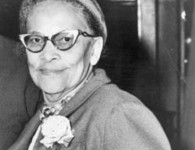
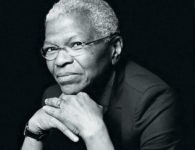
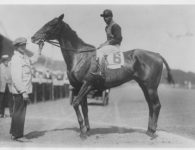
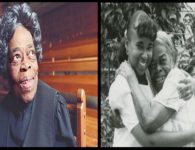

1 Comment
I really love this website because it have given me a lot of research and I will look on this website now if I need anything else to look up now that I know this web site now thankyou